

Introducing Dr. Jason Mirzaei, a Chemistry instructor at Alexander College. He earned his PhD in Chemistry with a focus on organic chemistry synthesis and nanomaterials, and has authored or co-authored more than 15 peer-reviewed publications.
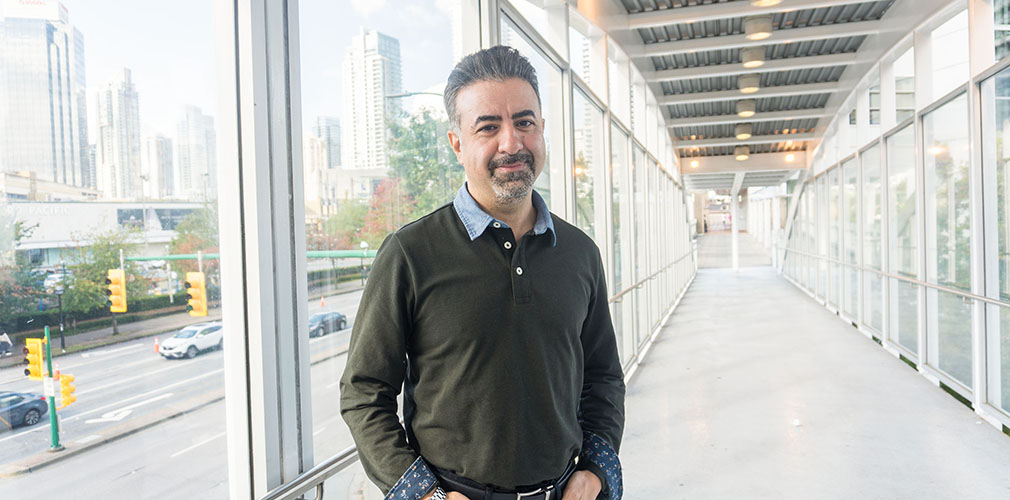 *The following interview has been edited for clarity and brevity.
*The following interview has been edited for clarity and brevity.
Q. Tell me a little about yourself.
I’m Jason Mirzaei, and I’m thrilled to be a chemistry instructor at Alexander College! Since joining the college in 2016, I’ve had the joy of teaching a variety of first-year and second-year chemistry courses and laboratories. It’s been a wonderful experience, and I love sharing my passion for chemistry with students!
Alongside my role as an instructor, I had the exciting opportunity to be the very first Canvas implementation supervisor back in 2018 when our college took the big step to launch Canvas.
In this position, I joyfully coordinated the implementation phase, collaborating with our amazing executive team, IT, and Canvas assistants, and connecting with wonderful individuals who could offer support to our faculty. I was also delighted to provide tutorials to help faculty members feel comfortable with the new system.
Since that memorable start, I’ve had the pleasure of participating in various community events at the college, including orientation and convocations, and I’ve been involved in several committees.
In addition, I’m proud to be one of the facilitators for the ISW workshop, which is recognized internationally and dedicated to enriching our faculty’s teaching practices.

Q. What are your hobbies?
I love watching great movies and exploring a wide variety of music genres! I see myself as an art enthusiast. During my graduate studies in Iran and later in Canada, while living in Winnipeg, I enjoyed visiting those cozy niche theatres known as Cinematheques, where they showcase independent films and unique productions. I spent so many enjoyable hours there! I also make it a point to dive into different music styles now and then—I find it fascinating to immerse myself in one genre before moving on to the next. Plus, I’ve attended a ton of amazing concerts along the way!
One of the things I cherish most is spending quality time with my family, especially my curious 7-year-old son. Whether we’re tackling fun projects around the house together or engaging with all his wonderful questions, I love every moment. I also enjoy coming up with fresh ideas to improve our organization and support our growth. This focus on both personal and professional development brings me so much joy and fulfillment!
Q. What are some of your achievements and publications?
I completed my undergraduate and master’s degrees in Iran, and I’m originally from there.
It wasn’t too long ago that I made the exciting move to Canada in 2010, which makes it about 14-15 years since I transitioned from Tehran to Winnipeg. I pursued my PhD studies at the University of Manitoba, and one personal achievement I cherish is that I navigated much of this journey on my own.
However, I owe a lot to my wonderful friends and mentors back home, whose support greatly influenced my choices. I’m truly grateful for their impact and knew I wanted to create new opportunities for my future. While I was working and even received appealing job offers, my determination to come to Canada never wavered.
— I hear you work with nanoparticles.
Absolutely! During my time in Iran, I had the exciting opportunity to work as an Organic Chemist while pursuing my master’s degree. It was such a rewarding experience to create new compounds!
My master’s research took place in a dynamic pharmaceutical lab, where I focused on synthesizing innovative medical compounds. That’s also when I discovered nanochemistry, and I must say, I was completely captivated by it!
Transitioning from pure organic chemistry to nanochemistry, which leans more towards materials chemistry, was quite a shift for me. However I was fortunate to immerse myself in the subject through extensive study and countless articles.
It wasn’t an easy journey to break into this research area, especially since my first publication was outside of it. However, I was thrilled to dive into my PhD, which centred around nanoparticles, quantum dots, and other avenues in nanochemistry.
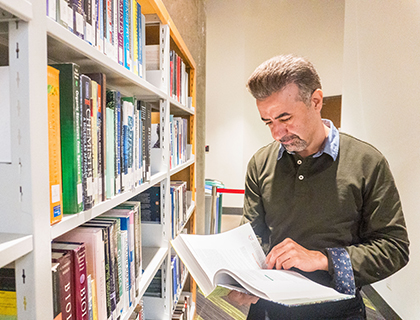
We utilize nanoparticles in a variety of fascinating applications. In particular, I became interested in how they could influence liquid crystals, which play a significant role in liquid crystal displays for TVs and other electronic devices.
It’s amazing to think that the latest generation of flat displays is actually built on quantum dot technology!
Continuing this path in my postdoc at UBC, I focused on the same research area, and I’m proud to have numerous publications showcasing my work. Overall, I’ve published around 15 peer-reviewed articles alongside my master’s and PhD theses, and I’ve had the privilege of presenting at various national and international conferences!
Q. Explain like I’m five: what are nanoparticles?
Did you know that the thickness of a single hair is about 100 microns? One micron is just one-thousandth of a millimetre!
Now, imagine if we took just one thread of hair at 100 microns and broke it down an astonishing 100000 times! We’d then dive into the fascinating world of nano.
But it’s not just about reaching those tiny sizes; the real magic lies in our ability to control and manipulate their properties at that scale. Many of these tiny particles behave quite differently than their larger counterparts.
For example, gold shows some captivating traits that disappear when it’s reduced to such small sizes, even changing colour—no longer yellow, it transforms into a beautiful deep red hue when in a solution! Plus, these particles have this incredible ability to assemble themselves, naturally coming together to form unique shapes.
If we can harness and control these self-assembly processes, we can unlock many novel optical and electric properties for various applications!
Q. What are your thoughts on receiving the Spring 2024 Faculty Award for Excellence in Instruction?
What a wonderful honour that was!
It brings me so much joy to see my students recognizing our shared efforts. I proudly expressed during my Convocation speech that I am truly proud of each and every one of them, and that’s why I’m here today.
I reminded them that their journey is just beginning on their graduation day; after all, commencement is all about new beginnings!
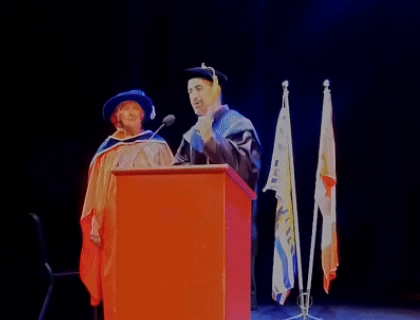
For me, this marks an exciting opportunity to bring even more energy into the classroom and share fresh ideas and expertise.
Q. What do you like about Alexander College?
My teaching journey began at the University of Manitoba, where I found myself in quite a large lecture hall setting. In those early days, the smallest class I taught had about 120 students!
In a lecture hall, you can connect with a few students who sit up front and are eager to engage, but many more are just there to take notes and then head out quietly, often without asking any questions.
It’s understandable, as the amount of work is usually overwhelming. We had a teaching assistant to help mark papers, assignments, and exams, which meant I didn’t get to know each student’s unique abilities very well.
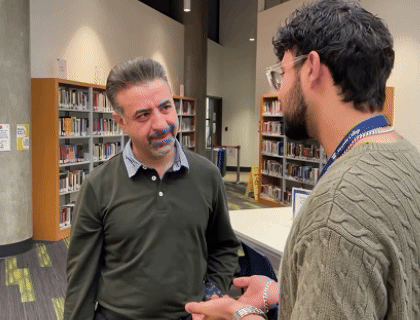
However, my experience changed when I started teaching at Alexander College. The environment here feels much more personal. With a maximum of 35 students in the classroom, I have the wonderful opportunity to learn about each student’s aspirations and performance in class.
This allows me to provide personalized feedback more frequently, and I believe this connection makes a big difference.
Students appreciate that someone is genuinely invested in their education, which is why I love working here – it’s so fulfilling to get to know students in a smaller classroom setting.
Moreover, the administration truly cares about the quality of education, as well as the work-life balance for both students and instructors. They are always attentive to our needs in the classroom. Knowing this supportive environment exists is definitely a reason why I’ve enjoyed teaching here for a long time!
Q. What can students expect in your class?
In my classrooms, I aim to create a variety of engaging activities that spark lively discussions. I devote much of our time together to equipping my students with essential skills for problem-solving, which I like to call a skill-based approach.
“I’m not going to talk about how you should ride a bike or what are the benefits of riding. Let’s just find a bike and ride it! That’s how you’re going to learn.”
I often remind my students that the key to understanding these challenges lies in actively engaging with them. They should encounter problems in different forms, break them down, analyze them, and use their knowledge to find solutions.
It’s similar to learning to swim—watching videos or reading about swimming theories just isn’t enough. You have to dive into the pool and start! Sure, there may be moments when you struggle or even go under, but with practice, you’ll learn to keep yourself afloat and thrive!
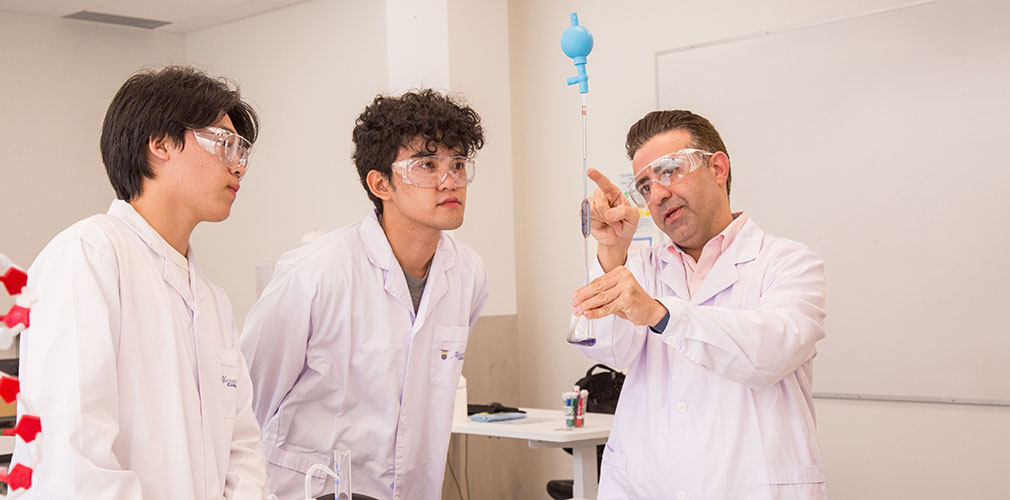
Q. What are some common misconceptions students have about the subject that you teach and how do you address them?
It’s common for students to feel that science, especially chemistry, is a bit tough and inflexible at first. I totally get their perspective, as this is often how science has been presented in the past. Other students say, “I had to take this course because I need a lab science, and the others were full.”
Traditionally, science has felt like a lot of memorization – it’s often seen as tedious and dull. Plus, there are tough questions that sometimes involve complex math. This leads to a common misconception that I really want to change. I’m here to show them that there’s so much they can learn and apply in their lives!
To make it relatable, I bring in lots of real-life examples. For instance, we might discuss a type of painkiller they’ve encountered in their day-to-day lives. Or we can explore the chemistry involved in cooking – understanding why certain ingredients create specific textures and flavours.
By using these examples, I see my students becoming more engaged and interested in the topics we cover.
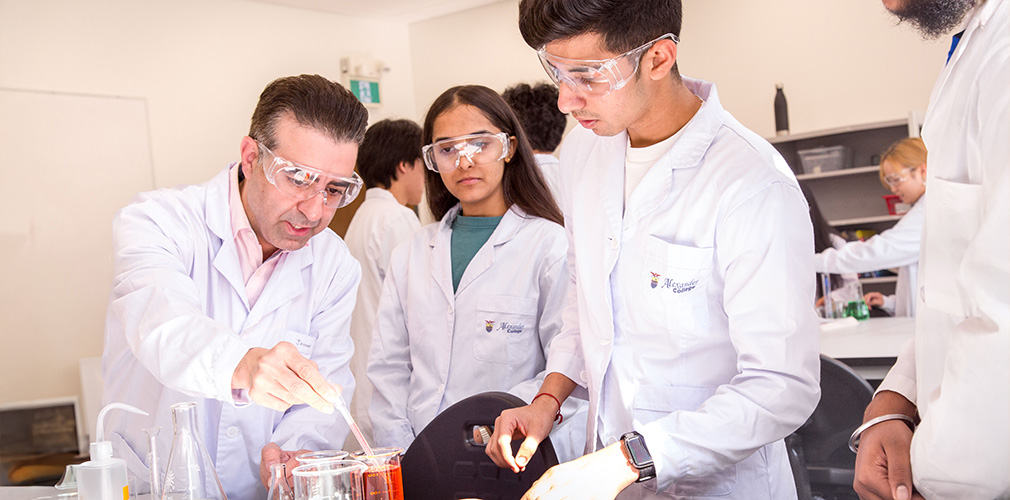
It’s truly my mission to help reshape how they view sciences, especially chemistry, and I find it very rewarding when they start to see its relevance in their everyday experiences.
Q. What are some challenges you see students facing right now and what advice would you give them?
Many students seem to lack clarity about their short-term and long-term goals. This uncertainty can sometimes lead them to make choices that aren’t beneficial or, in some cases, could even be harmful to their future.
Essentially, what I’m trying to convey is that college is a time for preparation. If students can envision their long-term goals, they’ll be more likely to ensure that their preparation aligns beautifully with those aspirations.
— Is there any advice you would give to those students who don’t exactly have clarity at the moment, like what they want to do?
I wholeheartedly encourage all students to reach out for help whenever you feel it’s needed! It’s such a fantastic opportunity to chat with your instructors about your goals and dreams during their office hours—they’re genuinely excited to lend their support!
Plus, the college offers an amazing variety of services, like Career Advising and Health and Wellness, all geared to help you thrive.
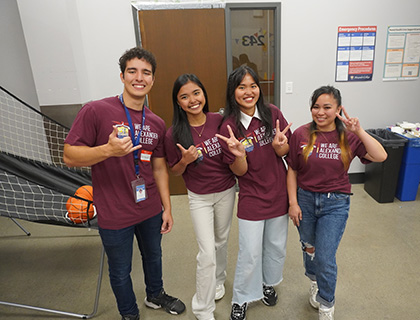
Usually, students who actively seek support and communicate their ambitions tend to excel in their courses.
For instance, those who get involved in extracurricular activities, like volunteer work, often find themselves doing exceptionally well in subjects such as physics, math, chemistry, psychology, and business. Ultimately, it’s all about nurturing hope and uncovering new opportunities that enrich your learning journey!
Staying active and keeping a positive mindset can lead to wonderful results over time. This is something I’ve learned and am eager to share with my students to inspire them on their paths!
Q. Is there anything else you want readers to know about you or just life in general?
It’s easy to forget just how precious our connections and friendships truly are and all the wonderful potential they hold. As we grow older, feeling that sense of connection and support—from both family and friends—becomes even more meaningful.
Think of it like an investment; these relationships require time, thoughtfulness, and a little planning to thrive.
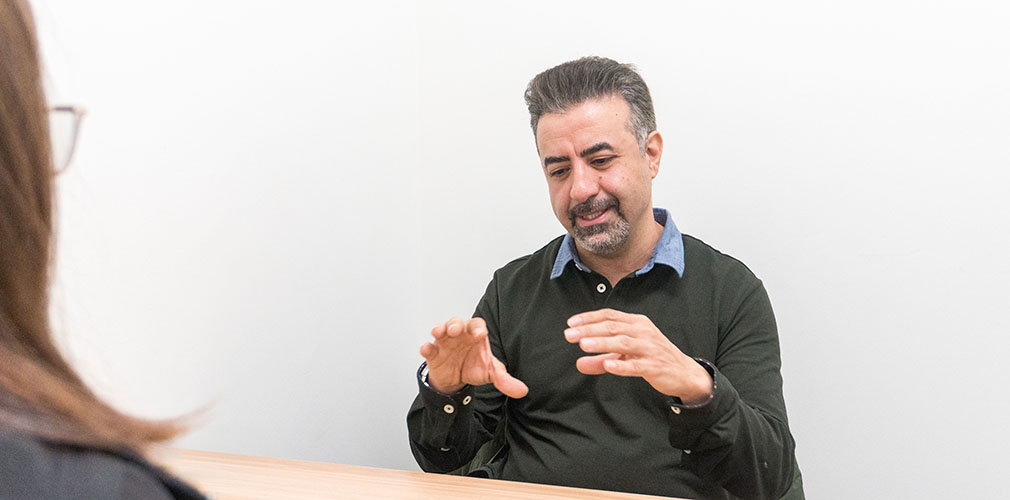
Meaningful things don’t just happen by coincidence; they truly flourish when we invest our love and care into them. As I journey through life, I hope to maintain those cherished connections and friendships that uplift us during both the highs and lows. I also see such a beautiful dynamic among my colleagues.
I feel incredibly fortunate to have met wonderful coworkers with whom I can share not just work-related thoughts, but also personal experiences, feeling safe and comfortable in doing so. These connections are invaluable, and it’s so important to appreciate and nurture them.
Having dependable family members and a support system makes such a positive difference in our lives.
Alexander College acknowledges that the land on which we usually gather is the traditional, ancestral and unceded territory of the Coast Salish peoples, including the territories of the xʷməθkwəy̓əm (Musqueam), Skwxwú7mesh (Squamish), and Səl̓ílwətaʔ/Selilwitulh (Tsleil-Waututh) Nations. We are grateful to have the opportunity to work in this territory.
Alexander College acknowledges that the land on which we usually gather is the traditional, ancestral and unceded territory of the Coast Salish peoples, including the territories of the xʷməθkwəy̓əm (Musqueam), Skwxwú7mesh (Squamish), and Səl̓ílwətaʔ/Selilwitulh (Tsleil-Waututh) Nations. We are grateful to have the opportunity to work in this territory.